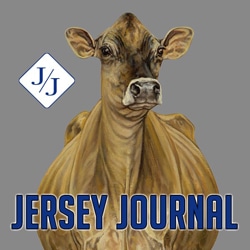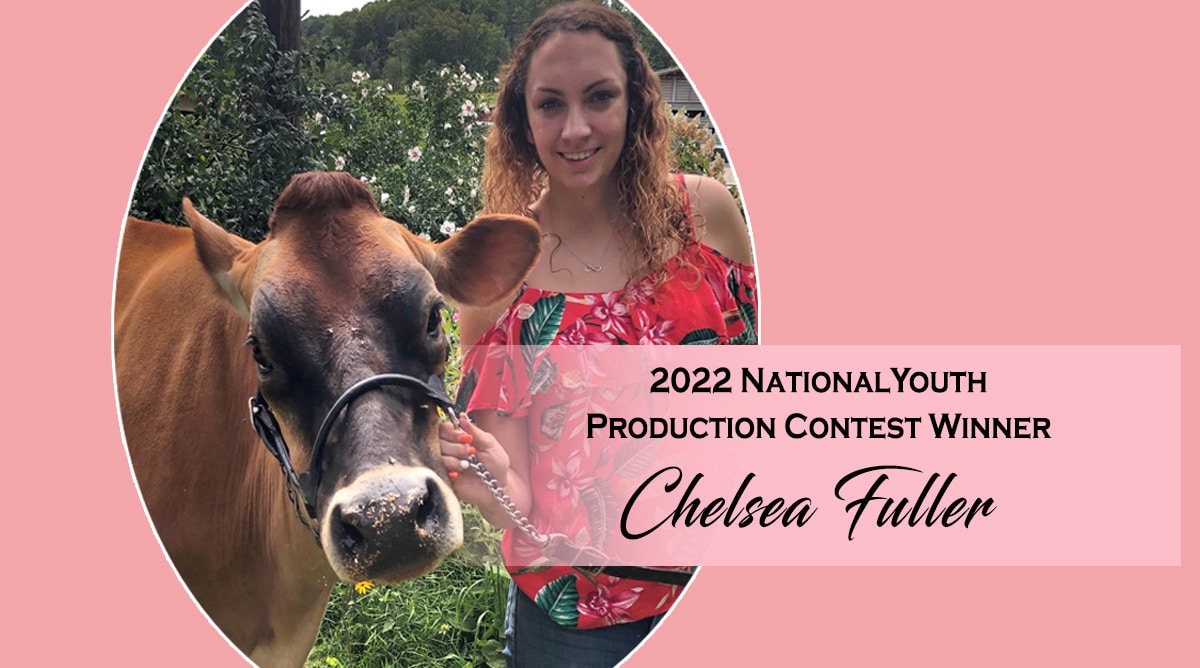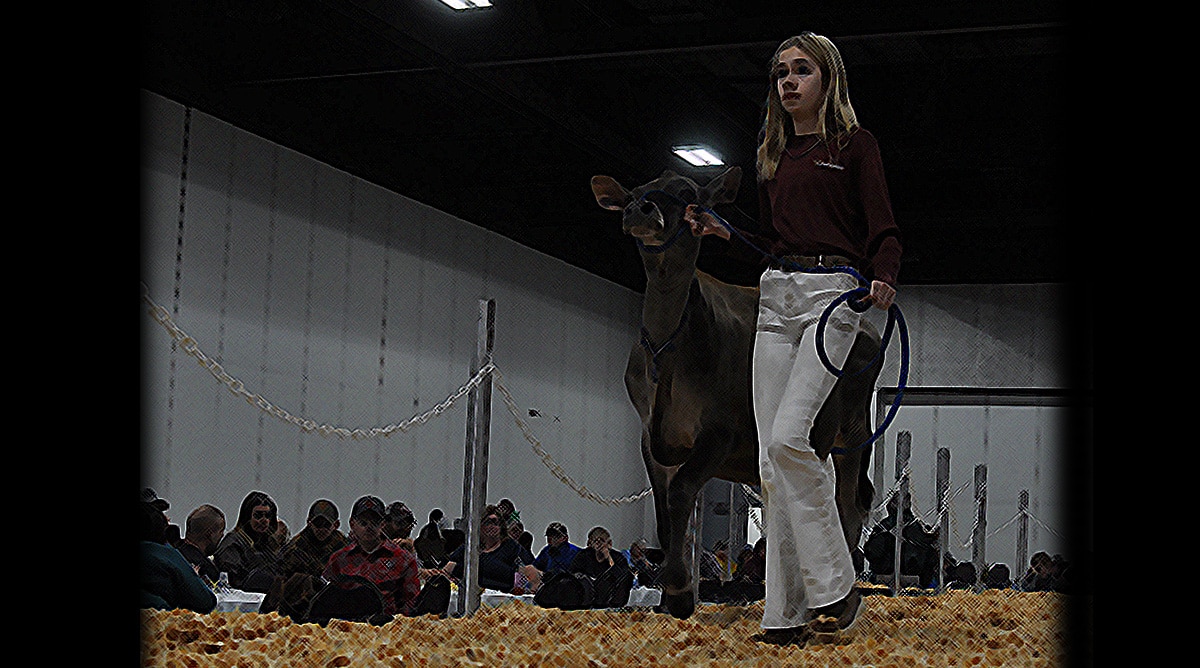Legacy Series: Robert Bignami of Brentwood Farms, Orland, Calif.
Welcome to the Legacy Series featuring Master Breeders of the American Jersey Cattle Association (AJCA). The Jersey Journal is excited to share stories with you about previous recipients of this award. We have asked each of them a series of questions covering topics from philosophy, farm history, breeding questions and even what they might be if they had not taken the route of Jersey breeder. We hope you enjoy getting to know these Jersey breeders and their advice and thoughts to the Jersey world today.
http://https://www.youtube.com/watch?v=32UMxl60xC0
Historical questions:
Describe your farm history and how Registered Jerseys became a part of your herd.
I grew up in Lafayette CA, a suburb of the Bay Area. From the time I was about 10, I went to my aunt’s farm whenever I could and learned to love the business. I got my first Jersey heifer in 1957, when my aunt and uncle decided to sell their beef cattle and go into the dairy business. They then purchased Royal Glenn Jerseys also in Orland CA. RGJ was owned by the K. Richard Preusser family. He was a vet and my first major professor at Chico State. He introduced me to showing and Jersey pedigrees. Unfortunately, he died of a heart attack in the feed alley at the Alameda Country Fair in 1962. We thought perhaps that’s the way he would have wanted it. Active with his Jerseys to the end. A great man who mentored both Harlan Askeland (my co Master Breeder award winner), and myself. After college, I worked for 4 years in dairy manufacturing business, and in in 1971 the Purington’s sold us the dairy herd and Pam and I were in business on our own.

What did this award mean to you and your family?
What could be better than the approval of your peers? Our life’s work validated by our friends.
Who were/are your mentors in the dairy industry?
In addition to Dr. Preusser, of course were my Great Aunt & Uncle, Arrie and Cy Purington. It was their farm where it all started for me and of course in 1971 when they sold the dairy to Pam and I. James Pappas judged a lot of the Country fairs and would stay with us when he was in the Orland area. I would visit his farm and it was like “a kid in a candy store” for me. Jim taught me about his bloodlines and functional type, he was a true believer in the Jersey cow. Harlan Askeland was my friend, he was 7 years older than me, and I learned a lot about cows from him. We were competitors at the California shows through September, (we would exhibit at 12-15 CA shows/ yr.) then I would combine our show herds and hit the State and Western National shows. In 1975 we became full time business partners in what became Brentwood Farms.
Your story:
In your opinion, who have been the most influential bulls and cows to your breeding program?
Starting in the late 1960s SS Quicksilver of Fallneva, Milestones Generator, Russell Observer Pompey Duke, who was our foundation sire from Russell’s in VT and purchased for us by the best appraiser of all time Al Meyer, (we used him for 15 years and almost every cow we own goes back to him) Sooner Centurion, Mason Boomer Sooner Berretta, Duncan Chief, BW Legion, BW Country, SC Gold Dust Paramont Iatola, BW Surefire, Ahlem Valentino Maui, BW Citation A, BW Reporter.
What do you consider your biggest success in the Registered Jersey business?
Without a doubt, working with Richard Clauss to create our two milk plants owned by Jersey dairymen and paying for the protein we produce. When we created this model, we were all on the verge of extinction because we were not being paid equitably for our product, we had the “take the bull by the horns” so to speak. We estimate it has added 100’s of millions of dollars to Jersey milk checks over the last 35 years worldwide.
Also, winning banners at National Shows in 5 separate decades, including the All American; exhibiting 10 National and Res National Champion cows including two at the All American; breeding several #1 ranked males and females; topping the All American Sale, and breeding over 1,060 Excellent cows was rewarding. I’m also proud of the way the AJCA staff has taken the “Jersey Academy” idea to new heights and helped create the next generation to carry on the Jersey legacy.
What one thing would you change that didn’t turn out the way you envisioned it?
I used to go to shows to see what bulls I wanted to use at home. Shows were interesting to see what was working in breeder herds. Unfortunately, we seem to have two, (perhaps three) Jersey breeds now, production cows, show cows, and somewhere in the middle. I wish we had one breed and one set of goals, and the show winners were the dams of our next generation of economic sires. In other words, I would like to see what I am buying to further my herd genetics instead of just letting a computer program tell me my future.
Why did you choose to stay with (or start with) Jerseys when the industry was going elsewhere?
I liked Jersey cows, and Holsteins are CRAZY as we all know.

Your Philosophy and Take on the Future:
What traits do or did you focus on the most for your breeding program? How did this evolve and change over time? How do you think they will change in the next 20 years as technology continues to evolve?
Harlan and I always looked for the most milk and components we could get in a sire, because our income was derived almost exclusively from milk sales. However, we liked to show, so we tried to pick bulls that would not only sire milk but have pleasing practical type, and we thought those were also the most profitable cows. It’s now harder to find bulls that “do it all”. There are few Generators, Duncan’s, Centurions, or Iatolas around much anymore. Make progress yes, use all the tools available, yes, but don’t forget phenotypical traits, if you do you will be disappointed in the results, in my opinion.
What piece of info on breeding do you know now that you wish you had known when you started out?
I would have done a lot better at the shows in the 1960s if I had purchased some Advance Sleeping Jester semen!
What is the biggest change you have seen in the dairy industry over your years of involvement?
True component pricing, larger herds, shrinking margins, more technology, and of course the omnipresent bureaucratic presence of the government trying to micromanage everything, very little of which is productive or helpful to anyone. It is important that our staff and directors of the AJCA keep involved with the political landscape. If we do not, we will become victims of it.
In 20 years, what do you think the average size of a commercial farm will be? How will that affect breeding decisions?
In 20 years, I’ll be 98, so I’m not sure how large our herd will be, but there is no doubt herd size will continue to grow, and I hope the College Professor genetics become just a bit more practical.
What do you think has been the greatest challenge the Jersey breed has, or will, encounter?
Milk substitutes could be our biggest competitive challenge in the future, but also environmental regulations, applied by people who have little knowledge or interest in our business and of course input costs. Labor will continue to be a problem and not just with COVID. More automation will be necessary.
What do you see as the future of the Jersey cow?
Efficiency is the key, and of course producing products the market needs. With sexed semen we can produce milk and beef in one package, that’s the future. Keep our cow efficient and use all her assets.
Promotion and Marketing:
As you worked with cow families in your herd, what avenues did you find were the best ways to get the word out about potential bull mothers, young bulls for sales, or special heifers in the herd? (past and present)
In the past (20-60 years ago) cattle shows were an important mechanism to exhibit your wares, adding in print advertising also helped. I think social media has taken over a large part of promotion in today’s world and cattle shows have little economic benefit to the industry. I wish that were not so. Also, promotion seems to be totally “number driven” which is not subjective and does not always tell the whole story.
Your dairy has had a strong presence in the Jersey Journal through the years – through advertising and/or award recognitions. How do you feel this has benefitted the marketability of your genetics?
We always enjoy reading the Jersey Journal it keeps us up to date on everything “Jersey”. For a long time, we advertised regularly in the “Journal” but not so much anymore. And the reason…. It’s simple we don’t chase numbers and genetics from unknown stock to market and populate our herd, therefore we don’t have much to advertise to the AI world. The program of using unproven genetics has taken over the A.I. world…… sad to say in my opinion!
The USJersey organizations offer many management tools for herds in the Jersey business. What programs have been the most beneficial to your growth and why?
The AJCA appraisal program is our most valuable tool. It really tells us (along with production data) how the herd is progressing (or regressing). Together with the available pedigree programs it really helps in the decision process. When you have a large herd, you just don’t “know” your cows like a smaller herd. The appraisal program really helps you analyze what is working and what is not.
What words of wisdom would you give to young breeders just starting out?
The most important thing to consider, without a doubt: Pick the right wife, husband, partner or whatever. There will be good times but also tough sledding ahead. Our business is like no other. Do it with someone who is your friend first, and you like, love, and admire.
Your Dairy’s Future:
We just “Keep on Truck ‘in” and see what the future gives us.
Time for some fun!
If you could bring any cow back from the dead and bred her one more time, guarantee heifer calf. What would you breed her too?

Of course, for me it has to be BW Centurion Iris E-95%. I might try Chrome or Got Maid although I might try Chocolatier Hmmmmmmmm!
What is one of your favorite cows (or cow families) that you have not bred?
Any of the great cows bred at Cedarcrest Farms.
If you were not a dairy farmer, what would you do career wise?
A Professional Bike Racer.













